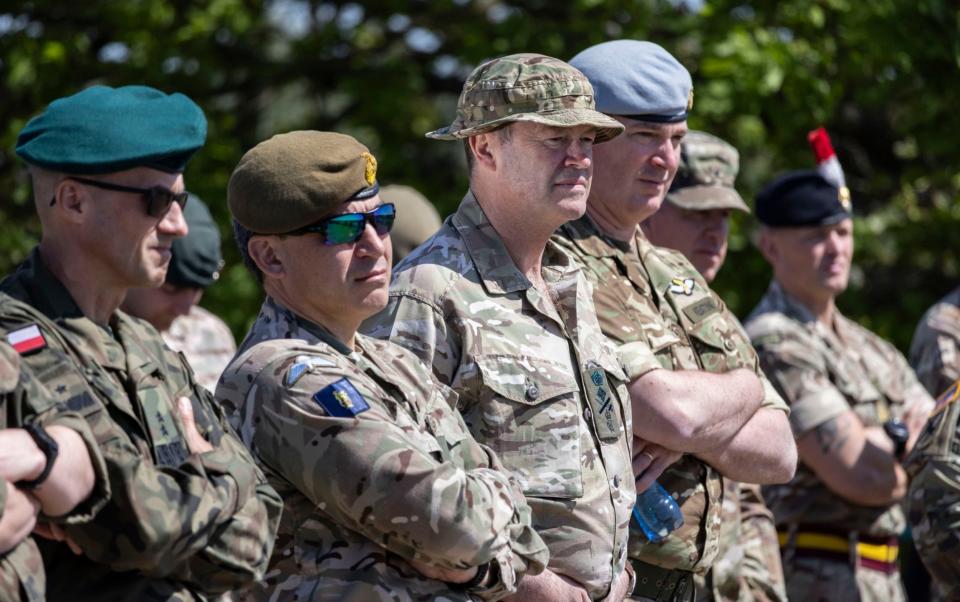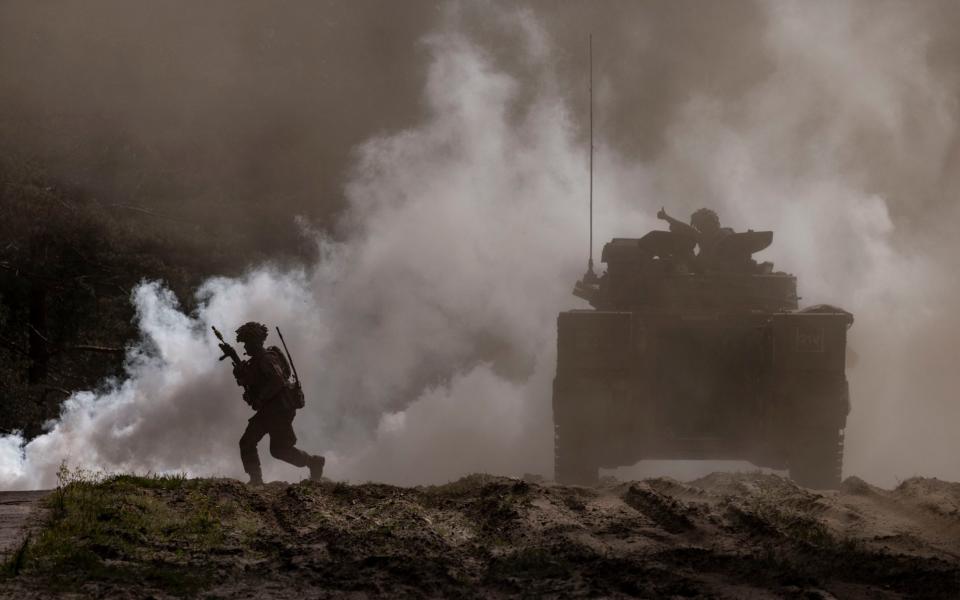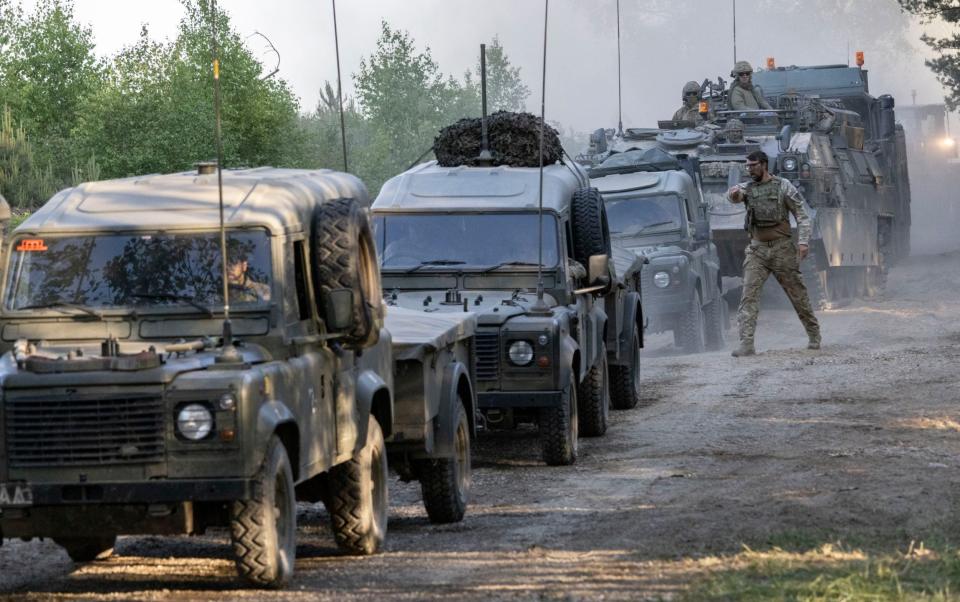Defence of UK ‘does not stop at edges of Europe’, says outgoing Army chief

The outgoing head of the Army has warned that the defence of the UK does “not stop at the edges of Europe” amid a growing threat from China.
Less than a fortnight after it was discovered that members of the Armed Forces were exposed to Chinese hackers, Gen Sir Patrick Sanders, Chief of the General Staff, appeared to warn of the importance of remembering that Britain was not just threatened by Russia.
Speaking in Poland as he attended what is expected to be his last major Nato exercise, Sir Patrick hinted at the threat of China in the Indo-Pacific as well as dangers closer to home.
He said: “The defence of the UK does not start at the White Cliffs of Dover nor does it stop at the edges of Europe. We have always recognised the need to commit continentally because it is the shared sacrifice and commitment, on land, that binds allies and deters adversaries.”
The comments will be viewed by some as a parting shot at ministers over funding of the Armed Forces. The Army is forecast to fall to its smallest size since the Napoleonic era in the coming years.
Sir Patrick, who will step down next month, met troops on Friday near Drawsko Pomorskie in western Poland taking part in Nato’s largest military exercise since the Cold War.

Nearly 2,400 British troops have been in Poland for exercise Immediate Response, which culminated in a complex river crossing involving more than 1,000 vehicles, including Challenger II tanks, in 24 hours.
It was one of several exercises as part of Nato’s Operation Steadfast Defender, a Nato war game and the largest deployment to Europe in 40 years, involving more than 40,000 Nato personnel, 16,000 from the British Army.
When he took over as Chief of the General Staff in 2022, shortly after Russia invaded Ukraine, Sir Patrick launched Operation Mobilise to look at boosting the readiness of British troops.
Following Friday’s exercise he said that he had aimed to “learn the lessons from the Ukraine conflict and bolster our deterrence” but added that preparing the UK’s readiness was “sending a message to our adversaries around the globe about our collective strength”.
‘Relentlessly pursued improvements’
“Since then, we have relentlessly pursued improvements to the collective readiness of the Army,” he said.
“We have reached a peak during Nato’s exercise Steadfast Defender, deploying more than 16,000 troops and thousands of vehicles to continental Europe. This is a scale of commitment not seen in a generation and represents the lethal, agile and expeditionary Army we are.
“We have powerfully demonstrated the success of Op Mobilise and now I am delighted that the Government is committing funding to the programmes that will modernise the British Army to ensure it continues to be at the heart of the Nato defensive alliance and beyond.”

The Ministry of Defence is still reeling after hackers, believed to be Chinese, accessed the payroll information including names, bank details and some addresses of serving personnel, reservists and veterans, in the data breach.
Last week the Chinese ambassador was summoned to the Foreign Office after three men were charged with assisting Hong Kong’s foreign intelligence service in Britain.
Sir Patrick did not specify which global threats he was referring to, but said that defending the country went beyond Europe.
Veiled attack
Sir Patrick’s comments will be interpreted by some as a warning that the government must keep its pledge, and a veiled attack on cuts to defence in recent years.
Earlier this year he warned that under-funding has left the Army in danger of becoming a “domestically-focused land force”.
In a leaked letter, he suggested the Army’s ability to mount overseas campaigns was in jeopardy and the force’s “strategic resilience” was at risk.
Sir Patrick also said he and senior officials “struggled to fully land our concerns” with the Ministry of Defence.

 Yahoo Sport
Yahoo Sport 






































